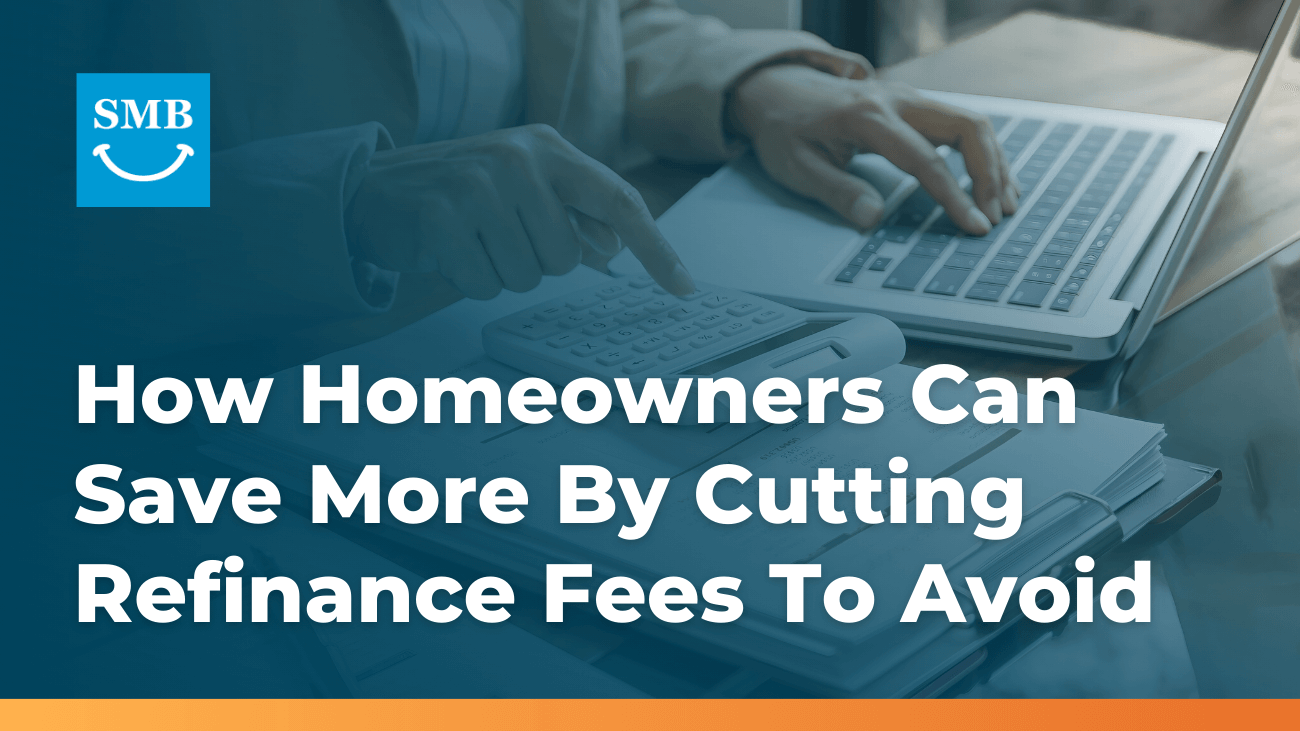What are RSUs and How to Spend Them

What is an ‘RSU’? If you have them, how do they affect your finances and ability to get a mortgage in Seattle?
Maybe you are being offered RSUs at a new job and want to know how they will impact your ability to buy or refinance a home. Maybe you already have them, but don’t really understand them. Before you make an offer on a home or count on refinancing to cash out your equity or try to lower your house payments, it’s smart to know how they work. Plus, be sure you understand how mortgage lenders will classify them before diving into the mortgage process.
What Is A RSU?
‘RSU’ stands for Restricted Stock Unit.
Restricted stock units are often offered to, or held by employees of startups and young tech companies.
It is important to note that RSUs are not stocks, shares or employee stock options.
A restricted stock unit is a promise that an employer will give an employee or other party stocks at a future date, providing the specified criteria or achievements and tenure are met.
This can be performance based and time based. RSUs are typically vested over time. Meaning your units are not converted into stock by your employer until some time. Often in parts. You may get 25% after a year. Another 25% after the second year, and so on.
Why Do Employers Use RSUs?
There are three main reasons that employers offer RSUs to their hires.
1. To Minimize Cash Flow Expenditures
Startups often don’t start out with a lot of money. They can’t pay competitive salaries in relation to big corporations to lure great talent. They don’t offer the same reputation or security. They use alternative forms of compensation like this to sweeten the job offer. They may offer you some small salary or performance based pay in addition to RSUs, stock options or shares.
2. To Maintain Stronger Balance Sheets
To survive and grow startups need to borrow and raise money from investors. Investors and lenders don’t want to loan to losing companies who have too much overhead and little if any profit. Arranging compensation in this way improves the balance sheet and profits and makes it much easier to raise equity and debt financing for the company.
3. To Motivate Workers To Perform
How else are you going to convince highly qualified workers with their choice of comfy employers to come work with your little startup, with no security and probably no benefits? How are you going to motivate them to work 100 hours a week and through nights, weekends and holidays, for a fraction of the pay of a 9-5 at Google or Apple? RSUs can be pitched as big windfalls that can one day be worth millions of dollars. It could be if the company becomes the next Facebook. It costs nothing for employers to one day promise to give someone shares of just their idea. If the company goes up in value everyone wins. It is doesn’t it didn’t cost the employer anything.
RSUs & Your Finances
How do RSUs work as a part of your finances?
They could one day be worth a substantial amount of money. Yet, they may be worthless at the beginning.
RSUs could offer supplemental income when they become vested, if the stock offers dividends. Or at least once you get ownership of the shares they may have liquid value and can be cashed in.
There are some potential downsides that RSU recipients should be aware of before and after vesting.
- They can be highly volatile in value, and can go down to zero
- They can be highly taxed when vested
- You typically have little to no control over their value and performance
- They remain a captive promise until they are actually vested
- They mean both your income and investments are reliant on this company succeeding
RSUs & Your Housing Payments
RSUs may offer the promise of substantially better finances in the future. That could be a lump sum or ongoing dividends and extra income.
That doesn’t always help with your housing payments today. So, you may want to opt for a lower housing payment now, and upgrade when you actually realize the benefits of your RSUs.
This could mean being more conservative with the home you buy now and scaling up later. It could be choosing a lower rate ARM mortgage loan or interest only home loan now, and switching to a fully amortizing fixed rate mortgage later.
Some other alternatives may be to sell your vested stock and make a larger down payment now, or to put that money into a more secure fixed income producing investment which may gain you more credit with mortgage underwriters.
Can You Use RSUs To Qualify For A Mortgage?
Yes, you can.
Many traditional banks still haven’t modernized their lending processes and may not recognize these assets. Yet, there are new lenders and mortgage brokers which can connect you with more up to date loan programs that will allow you to use your income and future assets from these units to help qualify for a larger home loan and even jumbo mortgage loans.
The most important thing to understand here is how mortgage lenders credit and value RSUs. Like many other types of assets from stocks to rental income, you will only be given credit for a portion of your RSUs.
They have to take into account:
- You may never convert to stocks
- Stock values may take a dive or the company could go bankrupt
- These may not be liquid assets
- The additional taxes and withholdings that can be taken out of RSUs
- Your history of receiving income from your private stock holdings over the past 2 years
They may give you credit for 75% of your RSU value. However, this can change during crisis times when values are declining.
In addition to your other paperwork, expect to provide your Seattle mortgage lender with a copy of your RSU agreement as well as any W2s or other payroll documents which show they have been vested.


The Ultimate Guide to the Best Suburbs of Seattle

Should You Use a Mortgage Broker? Everything You Need to Know First

How to Find the Right Neighborhoods in Seattle for Your Budget and Lifestyle

Warrantable vs. Non-Warrantable Condos: What Every Buyer Needs to Know Before Financing

How Much Does It Cost to Refinance a Mortgage in Seattle? A Homeowner’s Guide
.png)
How Often Can You Refinance Your Home?
.png)
The Complete Guide to For Sale By Owner (FSBO) in Seattle

10 Questions Every Seattle First-Time Home Buyer Asks

What is a Non-Warrantable Condo?

Ultimate Seattle Mortgage Loan Documents Checklist

Your Complete Guide to Seattle Property Tax

Why You Should Work with a Mortgage Broker

Where to Find the Best Local Mortgage Broker

Where Are The Best Places To Live In Seattle?

What’s the Best Way to Save Money for a House in Seattle?

When is the Best Time to Refinance a Home?

What is the Jumbo Loan Limit in Seattle 2020?

What You Need to Buy a House in Seattle

What Is a Jumbo Loan and will you need one when moving to Seattle?

What is the Jumbo Loan Limit in Seattle?

What Is A Non-Warrantable Condo?

What is the Best Down Payment Amount on a House in Seattle?

What is PMI Mortgage Insurance? And Why It Is Not As Bad As You Think

What Is A Cash-Out Refinance?

What do Home Loan Underwriters Look For?

What Down Payment Do I Need for a House?

What Are The Costs of Buying a Home?

What Are The Best Neighborhoods In Seattle For Families?

FAQ: What Are the VA Home Loan Requirements?

WEST SEATTLE JUNCTION ; Seattle Neighborhood Tour

What are RSUs and How to Spend Them

Understanding Mortgage Down Payments

Top 5 Seattle Suburbs to Buy In 2021

Understanding Down Payments in Seattle

The Ultimate Mortgage Document Checklist

Top 10 Questions To Ask A Mortgage Broker (Before You Commit)

The Worst First-Time Homebuyer Mistakes

The Top 5 Seattle Suburbs for 2020

The Best Seattle Neighborhoods in 2020

How to Find the Best Mortgage Refinance Companies in Seattle

The Best Seattle Neighborhoods for Families

The Best Neighborhoods in Seattle to Buy a Home

The 7 Best Seattle Suburbs for Families

Seattle Neighborhood Guide: The Top 10 Most Affordable Places To Live In Seattle

SOUTH LAKE UNION ; Seattle Neighborhood Tour

Seattle Summer Housing Market Guide 2020

Seattle Housing Market Update 2020

Seattle Housing Market Hacks

Save Money When Buying a House in Seattle

Save Money on Your Mortgage Refinance

Moving to Seattle with a Family? Here's the BEST Suburbs For You!

Refinancing To Reduce Your Bills and Increase Available Cash

Neighborhoods in Seattle to Buy a Home 2020

Real Estate Trends in Seattle

Mortgage Down Payments in Seattle

MAGNOLIA ; Seattle Neighborhood Tour

Mistakes to Avoid with Cash-Out Refinance

How to Refinance Your Home in 9 Steps

Jumbo Loan Limit vs Conforming Loan Limit in Seattle for 2021

KIRKLAND ; Seattle Neighborhood Tour

Jumbo Loan Limit in Seattle for 2021

ISSAQUAH ; Seattle Neighborhood Tour

Is My Credit Score Good Enough to Buy a House?

How to Buy a House; Home Buying 101

How to Lower Your Monthly Mortgage Payment

How to Get the Best Rate for Your Home Loan

How to Buy a House for Less

How Much Home Can I Buy in Seattle?

How Much Do You Really Need for a Down Payment in Seattle?

How Much Home Can I Afford?

Home Price Forecast for Seattle 2020

How Hot is the Seattle Real Estate Market?

How Hot is the Seattle Real Estate Market in 2022?

Home Inspection Questions You Need to Ask

Do You Need a Realtor to Buy a House in Seattle?

FHA vs. Conventional Loan: Which Mortgage Is Right for You?

Find the Best Mortgage Lender for Your Home Loan

Federal Housing Administration Loans 2021

Down Payment Requirements in Seattle

FACTORIA and SOMERSET ; Bellevue Neighborhood Tour

Everything you Need to Know About Seattle Jumbo Mortgages

Everything You Need to Know About VA Loans

Advice To A First Time Home Buyer: Down Payment Assistance Programs Exist for Millennials

CROSSROADS ; Bellevue Neighborhood Tour

Down Payment 101: How Much Money Do I Need to Buy a House?

COVID-19 Mortgage Help for Homeowners

Comparing ARM vs. Fixed Rate Mortgage

Can I Afford To Buy A Home In Seattle?

Choosing the Best Lenders for Home Loans

How to Use Restricted Stock Units to Buy a Home in Seattle

ARM v. Fixed Mortgage: Which is Right For You?

Ballard or Queen Anne? The Best Neighborhoods of Seattle to Buy a House

Avoiding the Worst Seattle Mortgage Lenders

Are You Buying a House in Seattle? Here’s the Ultimate Survival Guide

Fixed vs. Adjustable Rate Mortgage: How Today’s Buyers Can Make A Smarter Choice

ALKI BEACH ;; A Seattle Neighborhood Tour

A Complete Guide to Refinancing Your Home Loan

8 Ways to Lower Your Mortgage Payment


















